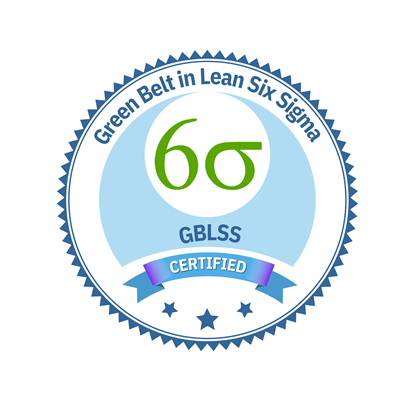The Green Belt in Lean Six Sigma (GBLSS) ® exam covers Lean Six Sigma Methodology, suitable for those who lead or support improvement projects part-time. Green Belts understand all phases of D-M-A-I-C and know how to use Six Sigma tools and Lean principles. They're valuable team members and our E-Learning course prepares you for the GBLSS® Exam, giving you a strong foundation in Lean Six Sigma. You'll learn to lead process improvement projects, work with Lean Six Sigma Black Belts, and implement Lean Six Sigma effectively in your organization.
Six Sigma relies on people, and team commitment affects project performance. While champions and Black Belts are often highlighted, Green Belts also play a crucial role in improving processes. They bridge the gap between Six Sigma theory and real-world application, focusing on process quality improvement. Green Belt training equips candidates with essential tools and DMAIC skills for Six Sigma projects.
E-Course Duration: 30 to 35 Hours

